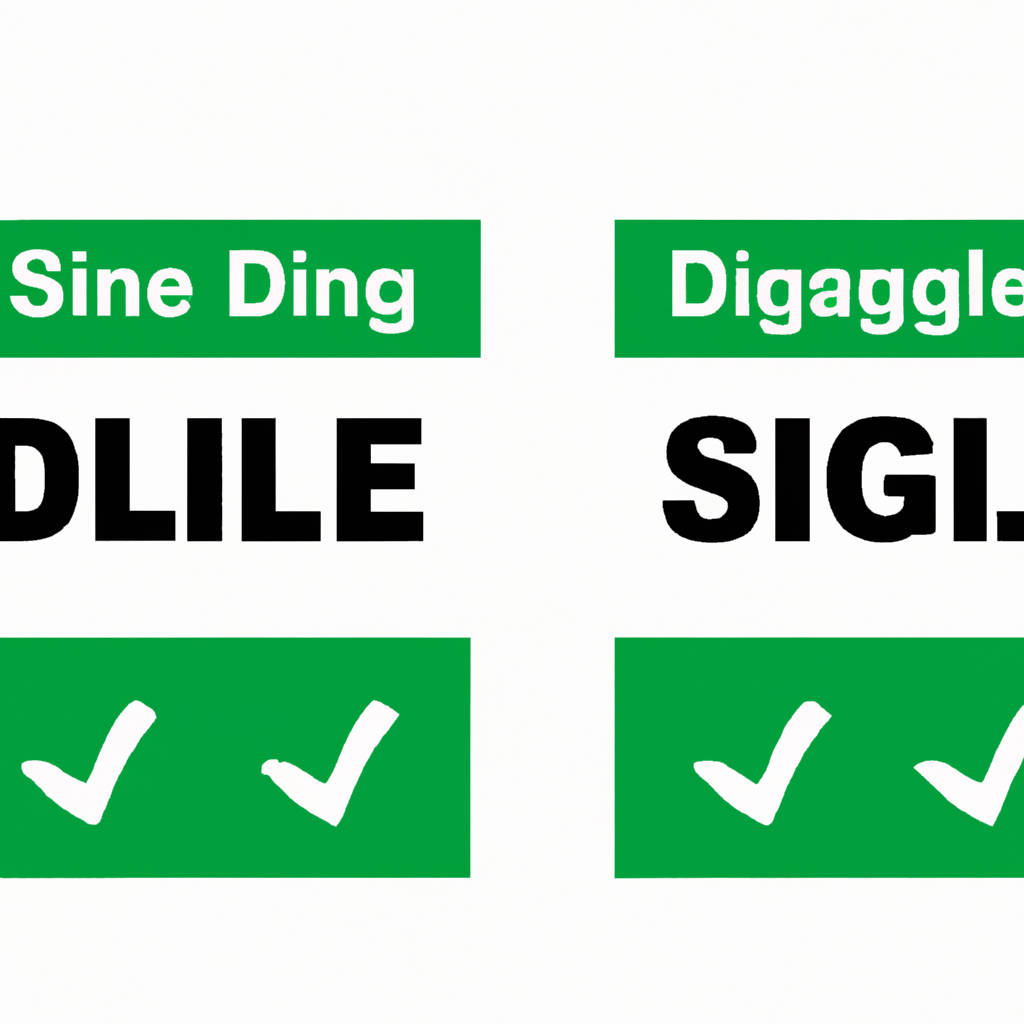Single vs Duplicate Check
When it comes to the comparison between single and duplicate checks, there are several factors that one can consider. Firstly, the single check system involves the issuance of a single check for each transaction or payment made. This method promotes simplicity and ease of tracking financial records since there is only one document to account for. On the other hand, the duplicate check system involves the use of two checks for every transaction, creating a copy of the original check. This duplication process ensures that both the payer and the payee have a record of the transaction. It serves as a valuable tool for maintaining transparency and preventing any misunderstandings or disputes in the future.
Another aspect to consider is the security factor. Single checks can be susceptible to potential risks as there is only one document involved. In comparison, duplicate checks provide an additional layer of security, as the copy can be used as evidence in case of any discrepancies. This creates a sense of trust between the parties involved, as they both possess a tangible record of the transaction. Additionally, duplicate checks can be helpful in situations where the original check may be lost or misplaced. In such cases, the copy can serve as a backup, ensuring that the transaction is not hindered due to the absence of the original check.
However, it is important to note that duplicate checks come with their own set of drawbacks. The process of duplicating checks can be time-consuming and may require additional effort compared to the single check system. Moreover, the storage and maintenance of duplicate checks can also pose a challenge, as it requires extra space and organization to ensure that all records are properly maintained. Additionally, the use of duplicate checks may result in increased costs, as it involves the printing of multiple copies for each transaction.
In conclusion, the choice between single and duplicate checks depends on various factors such as simplicity, security, and cost-effectiveness. Single checks offer a straightforward approach, while duplicate checks provide an added layer of security and transparency. It is essential for individuals or organizations to evaluate their specific needs and preferences before deciding which method suits them best.

What are Single Checks?
Single checks are a widely used payment method in various financial transactions. They serve as a secure and convenient alternative to cash and provide individuals and businesses with a means to transfer money. These checks are typically issued by a bank or financial institution and contain specific information such as the payer’s account number, the recipient’s name, and the amount to be paid. They are designed to be used for one-time transactions and cannot be used repeatedly. Single checks are an effective tool in facilitating the transfer of funds while ensuring accuracy and reliability. They play a crucial role in modern commerce, enabling individuals and businesses to settle debts, make purchases, and conduct financial transactions seamlessly.
What are Duplicate Checks?
Duplicate checks refer to a type of financial instrument that bears a striking resemblance to another check from the same bank account. These checks are created with the intent of providing a convenient solution for individuals who require multiple copies of the same check. Rather than going through the hassle of manually writing out multiple checks, duplicate checks allow for the creation of identical copies in a more efficient and time-saving manner. This can be particularly useful for situations where payments need to be made to multiple recipients or when the check writer wants to retain a copy for their records. Duplicate checks essentially streamline the check-writing process and ensure that all parties involved receive the necessary documentation without any complications.

Single vs Duplicate checks: Which one is better?
When it comes to the choice between single and duplicate checks, it is important to consider the advantages and disadvantages of each option. Single checks, as the name suggests, are individual checks that are used only once. On the other hand, duplicate checks create a carbon copy of each check, allowing for a record to be kept by the issuer. While both options have their merits, the decision ultimately depends on the specific needs and preferences of the individual or business.
One of the main advantages of single checks is their simplicity. With single checks, there is no need to worry about keeping track of carbon copies or making additional entries in a checkbook register. This can be particularly beneficial for individuals who prefer a straightforward and uncomplicated approach to their financial transactions. Single checks are also less bulky and easier to carry around, making them a convenient choice for those who are constantly on the go.
On the other hand, duplicate checks offer a level of record-keeping that can be valuable for individuals and businesses alike. By retaining a carbon copy of each check, it becomes easier to track and reconcile payments. This can simplify the process of balancing accounts and identifying any discrepancies that may arise. Duplicate checks also provide an extra level of security, as the carbon copy can serve as proof of payment in case of any disputes or misunderstandings.
Another factor to consider when deciding between single and duplicate checks is the potential for mistakes. With single checks, there is a higher risk of errors such as writing the wrong amount or forgetting to record a payment. Duplicate checks, on the other hand, offer a built-in mechanism for reducing mistakes. By having a carbon copy, it becomes easier to spot any discrepancies and rectify them promptly. This can save time and effort in the long run, as it eliminates the need to search through bank statements or contact the recipient for verification.
Furthermore, the choice between single and duplicate checks can also depend on the level of control and organization desired. Single checks provide a sense of finality, as once the check is issued, there is no chance of it being duplicated or altered. This can be reassuring for individuals who prefer to have complete control over their financial transactions. Duplicate checks, on the other hand, offer a level of organization that can be beneficial for businesses that deal with a high volume of payments. By keeping a record of each check issued, it becomes easier to track and manage expenses, ensuring that all payments are accounted for.
In conclusion, the decision between single and duplicate checks ultimately depends on personal preference and specific needs. Single checks offer simplicity and convenience, while duplicate checks provide a level of record-keeping and security. It is important to weigh the advantages and disadvantages of each option before making a decision. Whether it is the desire for a straightforward approach or the need for meticulous record-keeping, both single and duplicate checks can serve their purpose effectively.



